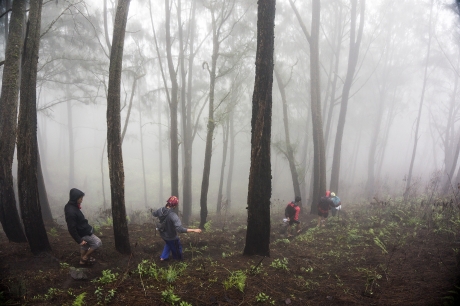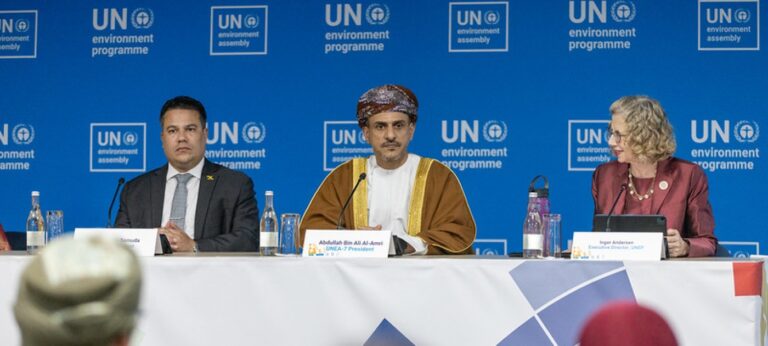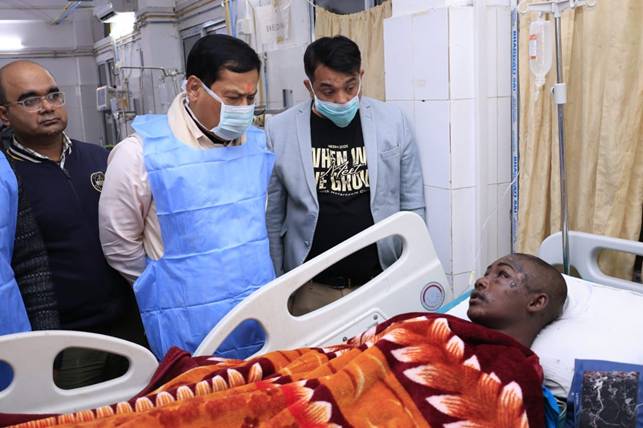
Jakarta: Immense and rich in biodiversity, the Indonesian rainforest is considered one of the more important of Earth’s forests. With over 92 million hectares of forest in 2020, Indonesia comes in eighth in terms of countries with the largest area of forests globally. On the other hand, it ranked third in terms of a country’s average annual net loss of forest area from 2010 to 2020, according to the Food and Agriculture Organization’s [FAO] Global Forest Resources Assessment 2020, a comprehensive evaluation of the world’s forests based on official national statistics.
New generations of students in Indonesia are today helping adapt local knowledge and practices to a changing world because of broadening forestry education to tackle the climate crisis.

Twenty-year-old, Rahma (Dhina) Maulidhina is one such youngster. She has been fascinated by forests, particularly in her home country of Indonesia, ever since she was young.
Dhina works as a commissioner for the Centre for People and Forests, an international organization focused on training and research on community forestry in Southeast Asia. She is also studying Forest Resource Conservation and Ecotourism at Bogor Agricultural University.
Like many students worldwide, she found that the COVID-19 pandemic had an impact on her studies. As one key example, field activities, an important part of the forestry curriculum, were cancelled. With no official field trips, no animal observation and limited opportunities to visit protected areas, she found herself in a difficult position.

However, in 2021, after Dhina became president of the local committee of the International Forestry Student Association, she became involved in an international network of students where she learned about the opportunity to join a three-week online course on “Forests and Transparency under the Paris Agreement” organized by FAO.
In collaboration with the United Nations Framework Convention on Climate Change, the online course was organized under FAO’s project Building Global Capacity to Increase Transparency in the Forest sector, funded by the Global Environment Facility (GEF). Originally intended for professionals and officers working within the forest, land use and climate change sectors, the course and all the course materials are now publicly available on the FAO eLearning Academy website.
The initiative is part of FAO’s work to strengthen the capacity of developing countries to collect, analyse and disseminate forest-related data to meet the transparency requirements of the Paris Agreement, which requires that all Parties report on their carbon emissions and removals. As part of the ambitious goal of keeping the global rise in temperature under 2° Celsius above pre-industrial levels, countries need to report on their progress towards their climate mitigation and adaptation targets. Strengthening national forest monitoring systems helps produce the necessary data, information and transparency on forest-related emissions, hence supporting countries’ efforts under the Paris Agreement.
Dhina believes that everything connects to forestry. This course was another step in her goal of conserving the valuable forest resources and the services they provide in her home country. She was attracted by the interesting topics of the online course and by the fact that it was open to everyone for free. Moreover, her university classes do not tackle many of the subjects covered in the course. “The course really helped me broaden my knowledge regarding worldwide issues.”
Through the online session, she learned more about the efforts made by Indonesia to monitor national forests in the context of climate change. She was very proud to see the name of her country mentioned several times in the educational materials.
Indonesia has improved its capacity in forest monitoring and is strengthening its national forest monitoring system to ensure high-integrity forest data. Dhina recognizes that significant changes are occurring in the forestry sector in her country.
Yet, better regulation and policies to conserve and sustainably manage forests are needed. While hunger and lack of alternatives to earn a living can limit forest communities’ options, Dhina emphasizes that while “unsustainable forest practices can be profitable in the short-term, they eventually result in scarce resources and hence worsen the situation”.
Dhina believes that solutions also lie in communities’ existing local knowledge, as they have been living side by side with the forest for a long time. Their practices have been built over a long period and made suitable to their environment. “What we can do is to assist them to adapt and preserve this local wisdom because the world is changing in different ways.”
Being a young woman in this field, Dhina also highlights the importance of improving gender equality among forestry professionals. With mentalities changing and technological advances in data collection, Dhina feels that women’s participation will improve in this sector traditionally dominated by men.
Source: the FAO News and Media office
– global bihari bureau





